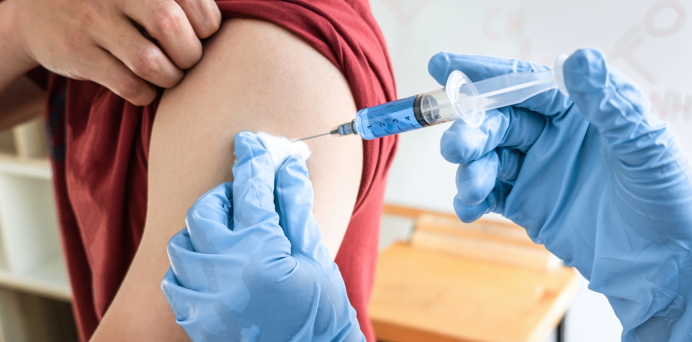News release
From:
Blood cancer patients benefit from single flu vaccination
New research published in the New England Journal of Medicine (NEJM) has shown a single dose of the influenza vaccine is sufficient for people with blood cancer who have not had a transplant.
Lead Peter Mac researchers Dr Victoria Hall and Associate Professor Ben Teh explained that blood cancer patients are immune-compromised making them very susceptible to influenza.
“Our research was a collaborative effort led by the Department of Infectious Diseases/National Centre for Infections in Cancer which set out to understand the most effective flu vaccination strategy for this compromised group of patients,” they said.
“Clinicians had been using different vaccination strategies such as two doses of flu vaccine, especially with the stronger formulation (adjuvant) vaccine believing it would provide a more robust immune response and therefore better protection.
“Importantly our controlled clinical trial showed no additional benefit from using the adjuvant vaccine or in providing people with a second dose in the same season.”
Associate Professor Teh said, “We know trying to have two doses can be challenging for many patients and our trial provides strong evidence that a single dose of an age-appropriate flu vaccine is sufficient for non-transplant blood cancer patients.
It also ensures the best use of vaccines made available to patients under the National Immunisation Program.
“Our efforts should now focus on increasing flu vaccine uptake and identifying additional ways to improve protection in people with chronic lymphocytic leukaemia and non-Hodgkin lymphoma who are especially vulnerable.”



 Australia; VIC
Australia; VIC



